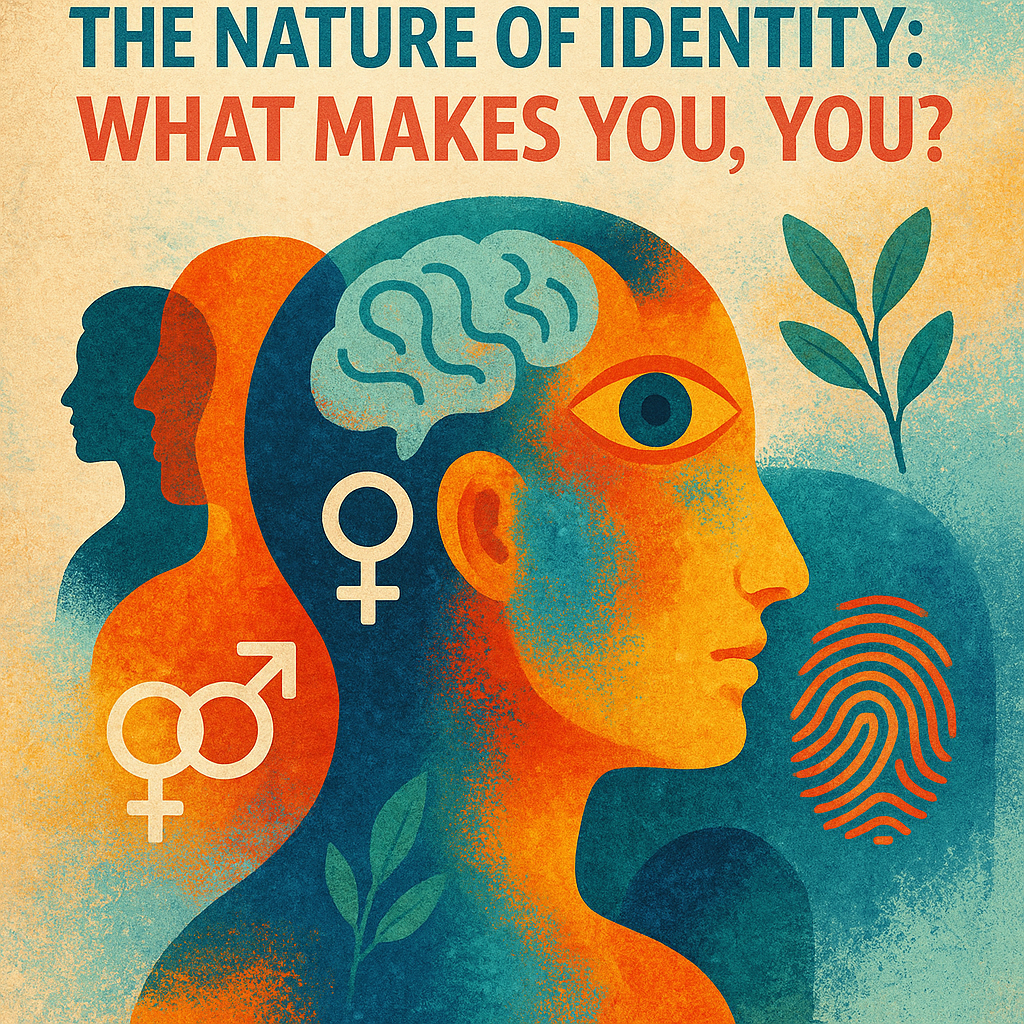
Who are you? It seems like a simple question, but when you delve into it, the answer becomes surprisingly complex. We all have a sense of self, a feeling of being a continuous “I” that persists through time. But what exactly is this self? What makes you the same person you were ten years ago, and the same person you will be in the future? This is the philosophical problem of personal identity, and it has puzzled thinkers for centuries.
The Problem of Personal Identity
The problem of personal identity is concerned with what makes a person numerically identical over time. It’s not about what qualities or characteristics make you similar to your past self (qualitative identity), but what makes you literally the same being.
To illustrate, consider this: You change constantly. Your body replaces its cells, your thoughts and memories evolve, and your personality shifts. So, in the face of all this change, what remains constant? What is the core “you” that persists?
Philosophers have proposed several answers to this question, often focusing on different aspects of what it means to be a person. Here are some of the main perspectives:
1. Physical Continuity
One intuitive answer is that personal identity is tied to the physical body. The idea is that you are the same person over time because you have the same body. This view emphasizes materialism, the idea that we are fundamentally physical beings.
- Arguments for: This view aligns with our everyday experience. We often identify people by their physical appearance. It also seems to provide a clear and objective criterion for identity.
- Challenges: The Ship of Theseus thought experiment challenges this view. If you replace every plank of a ship over time, is it still the same ship? Similarly, if your body is constantly changing at the cellular level, are you still the same physical entity? Brain transplants also pose a problem: if your brain is transferred to another body, where does your identity go?
2. Psychological Continuity
Another influential view, championed by philosopher John Locke, is that personal identity is grounded in psychological continuity. This perspective emphasizes the importance of the mind, particularly memory and consciousness.
- Arguments for: This view captures the subjective sense of self. Our memories, thoughts, and feelings seem central to who we are. Locke argued that personal identity depends on the continuity of consciousness – the ability to remember past experiences.
- Challenges:
- Memory is fallible: Memories can be lost, distorted, or fabricated. If identity relies on memory, what happens when memories are unreliable?
- Gaps in consciousness: We experience gaps in consciousness (e.g., during sleep). Does our identity cease to exist when we are unconscious?
- The problem of duplicates: Thought experiments involving brain splitting or cloning raise the issue of what happens to identity when psychological continuity is divided. If your memories and personality are transferred into two different bodies, which one is you? Or are both?
3. The Soul or Substance View
Historically, many philosophers and religious traditions have posited the existence of a non-physical soul or substance as the basis of personal identity. This view holds that there is an immaterial essence that remains constant despite changes in the body or mind.
- Arguments for: This view offers a simple solution to the problem of change. The soul, being immaterial and unchanging, provides a stable foundation for identity. It also aligns with some religious beliefs about the afterlife.
- Challenges:
- Lack of empirical evidence: There is no scientific evidence for the existence of a soul.
- Explanatory power: It is unclear how an immaterial soul interacts with the physical body or gives rise to consciousness.
- The problem of individuation: If all souls are immaterial and similar, what makes one soul yours and another soul someone else’s?
4. Narrative Identity
More recently, some philosophers and psychologists have proposed that personal identity is a matter of narrative. This view suggests that we construct a sense of self by creating and constantly revising a story about our lives.
- Arguments for: This view captures the dynamic and evolving nature of identity. It acknowledges that our sense of self is not fixed but is shaped by our experiences and how we interpret them. It also highlights the role of culture and social interaction in shaping our identities.
- Challenges:
- Narrative Fiction: To what extent are we the authors of our own narratives, and to what extent are they imposed upon us by external forces?
- The Problem of the unreliable narrator: Our memories and interpretations of the past can be flawed. How does this affect the “truth” of our self-narratives?
- Loss of Narrative: Conditions like dementia can significantly disrupt one’s self-narrative. In such cases, is personal identity lost?
The Implications of Personal Identity
The question of personal identity is not just an abstract philosophical puzzle. It has important implications for various aspects of our lives, including:
- Ethics: Our understanding of personal identity influences our views on moral responsibility, punishment, and reward. If a person is fundamentally different from their past self, does it make sense to hold them accountable for past actions?
- Law: Legal concepts like criminal responsibility and inheritance depend on the notion of personal identity.
- Life after death: Beliefs about personal identity are central to many religious and philosophical views on the possibility of survival after death.
- Mental health: Our sense of self is crucial for psychological well-being. Disruptions to personal identity, such as those experienced in dissociative disorders, can have profound consequences.
- Emerging Technologies: As technology advances, questions of personal identity become even more pressing. Consider the implications of technologies like brain-computer interfaces, advanced prosthetics, or even the possibility of mind uploading.
Conclusion
The question of what makes you, you is one of the most fundamental and enduring questions in philosophy. There is no single, universally accepted answer. Each of the perspectives we’ve explored offers valuable insights, but each also faces significant challenges.
Ultimately, the nature of identity remains a mystery. It’s a question that invites ongoing reflection and exploration. As we continue to learn more about the brain, the mind, and the nature of reality, our understanding of who we are may continue to evolve.
Internal Links:
- https://ndeinsights.net/the-secret-quantum-consciousness-remote-influence/
- https://ndeinsights.net/soul-leaving-body-scientific-evidence/
- https://ndeinsights.net/alpha-state-of-mind/
External Links:

